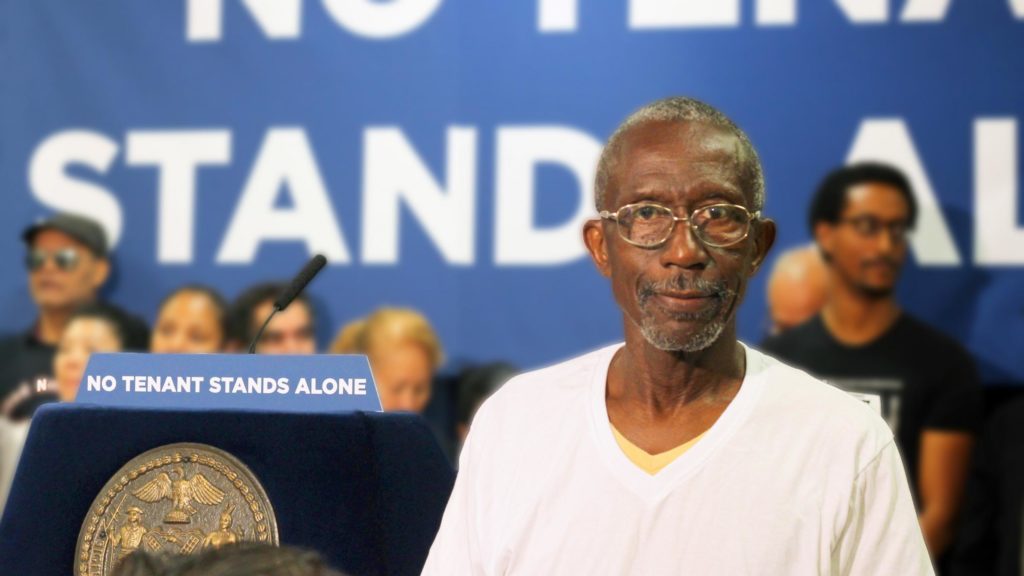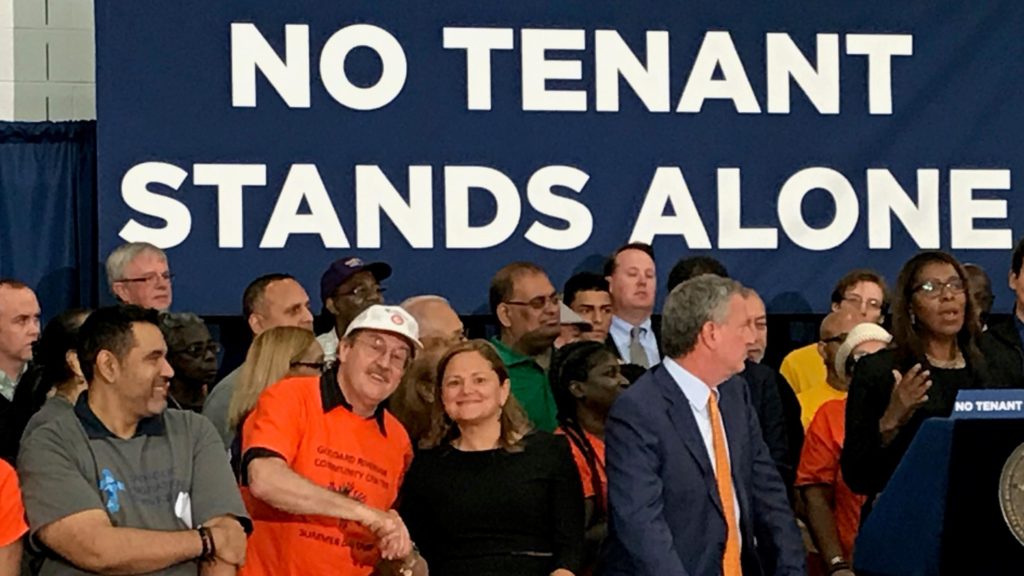

No water, no heat, no gas. Ear-splitting noise. Vibrations so hard they shake the pictures off the walls. Floorboards removed so you can see all the way through to the story below. Landlords knocking on the door day and night, demanding that the apartment be vacated.
Tenants and organizers at the Goddard Riverside Law Project have seen all this and more. They’ve spent years partnering with organizations across the city to fight for laws that would protect New York City renters from harassment aimed at forcing them out of their homes.
This year, they won big.
“Tenant harassment is among the most malicious side effects of New York City’s economic boom,” said Mayor Bill de Blasio while signing 18 tenant protection laws into effect in late August. He went on to thank “tenants and tenant advocates across this great city” who worked hard to pass the legislation.
Among those tenants is Carl Harrison. Through his activism with the Law Project, he has testified before lawmakers and attended rallies and press conferences to support the Stand for Tenant Safety bills.
“My building was recently purchased by a new landlord, who immediately started construction without getting the proper permits,” he said at the signing. “The work disrupted my life and cut off services to the building.
“The Stand for Tenant Safety package of bills will hold landlords and the Department of Buildings accountable.”
Among other things, the new laws increase penalties for violating a stop order or doing construction without a permit. They require city inspections to ensure tenants are being protected, and allow tenants to collect damages in harassment cases. They also create an Office of the Tenant Advocate within the city’s Department of Buildings.
The passage of the 18 bills comes on the heels of another major victory for tenants. Earlier in the summer, New York became the first city in the country to guarantee low-income renters a lawyer in Housing Court. This gives tenants a fighting chance against landlords, who almost always have lawyers at their side.
“We see it over and over again,” said Goddard Riverside’s longtime director of organizing, Larry Wood. “Tenants who go into Housing Court without lawyers often lose. If those same tenants have lawyers, they will often win.”
The Goddard Riverside Law Project has a long history of empowering tenants. It offers:
- free legal representation in Housing Court for SRO tenants and some apartment-dwellers on the west side of Manhattan;
- tenant organizing and legal advocacy;
- help identifying and getting housing-related benefits;
- public workshops and legal clinics for the community.
These services strengthen the fabric of the community by preserving affordable housing, keeping people in their homes and neighborhoods and preventing homelessness — which is not only disastrous for those who experience it, but costly for taxpayers.
While these legislative victories give tenants’ rights a major boost, renters can still face an uphill battle against landlords who want to push them out. The Law Project stands ready to help.
“These laws are effective tools in the right hands,” said Wood, “but much more needs to be done to stop evictions and preserve New York City’s affordable housing.”